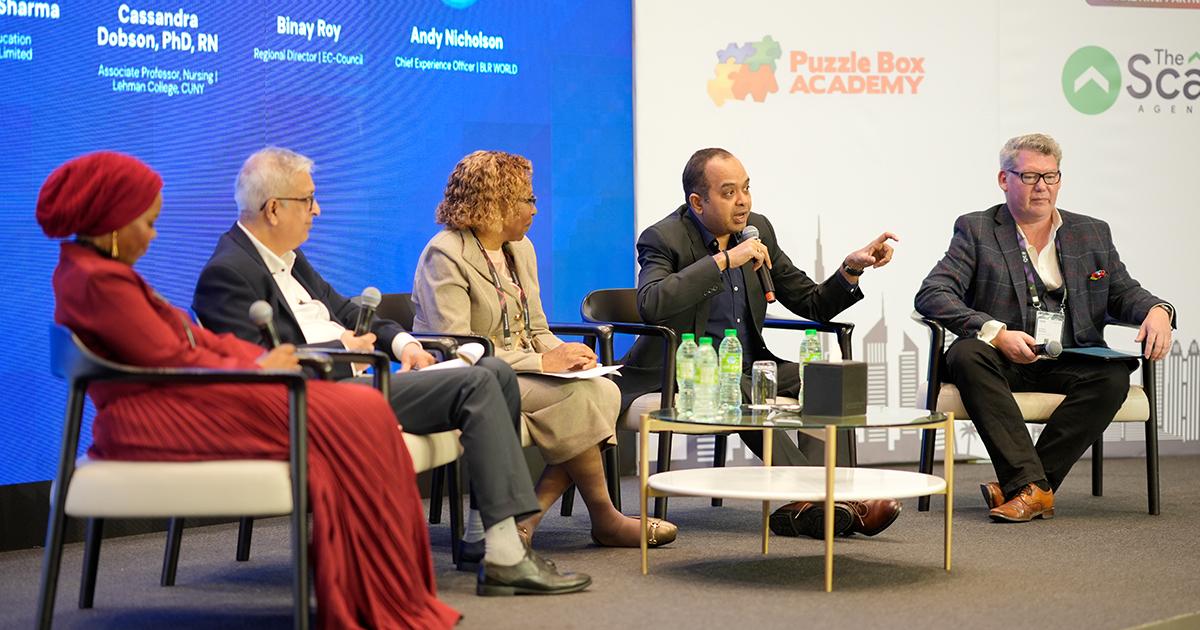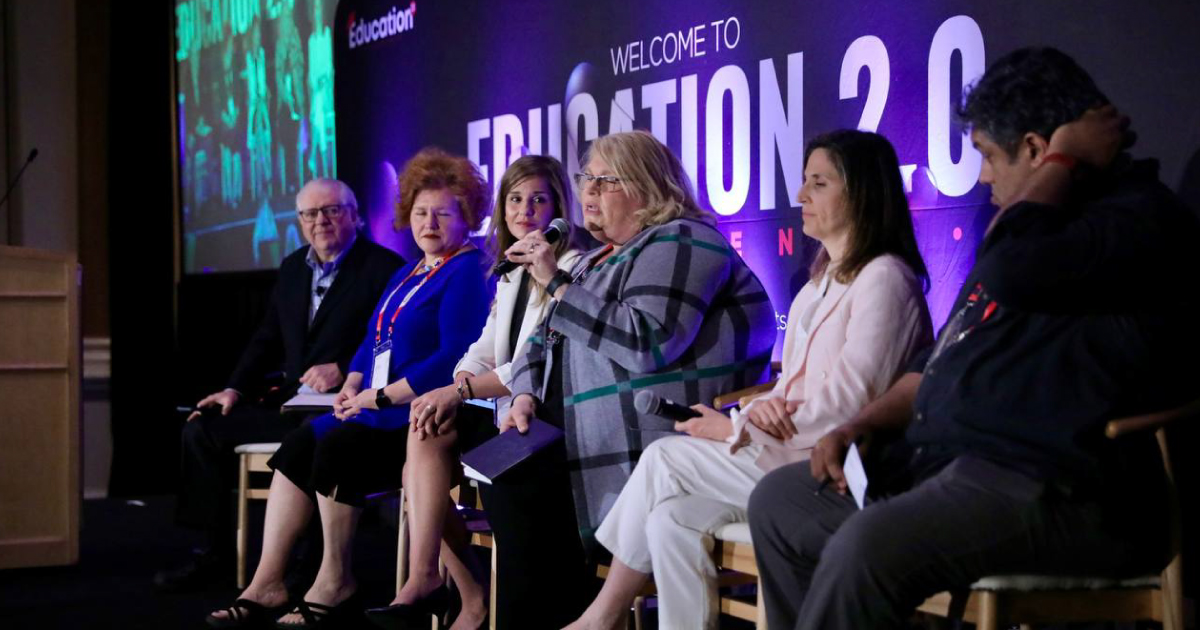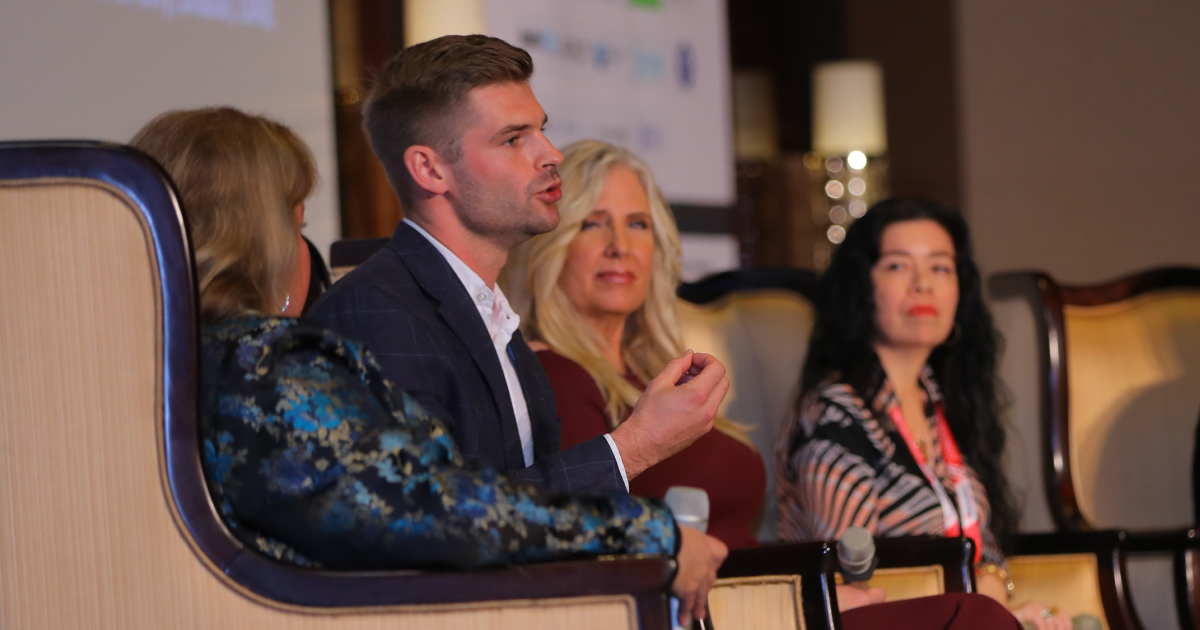
Decolonizing English Language Teaching & Pedagogy
Posted on : April 25, 2023

In the era of globalization, English has become a means of communication for people from different cultural and linguistic backgrounds. We’re well aware of the colonial history of the English language however, its lingering mark and the imposition of western pedagogies in the current era are topics yet to be explored fully. Has the English language been fully adapted and is its pedagogy well accepted in educational systems today?
Seeking to answer the question, many education events in the USA invite experts and educationists to share their perspectives. Education 2.0 Conference, for instance, is a highly sought-after global education event that highlights the importance of educational trends today. Let’s break down English language pedagogy with the experts at 2023’s most anticipated education summit.
What Does Pedagogy Refer To?
Pedagogy is the study of teaching and learning methods, strategies, and practices. It involves understanding how people learn, designing effective learning environments, and creating engaging learning experiences. Pedagogy encompasses a wide range of educational approaches, including the use of technology, collaborative learning, and experiential learning.
Effective pedagogy requires a deep understanding of the learner, the content being taught, and the context in which the learning takes place. It involves the intentional use of teaching methods and strategies that facilitate learning and promote critical thinking, problem-solving, and creativity. Pedagogy is essential for creating meaningful and transformative educational experiences that prepare learners for success in the 21st century.
Traditional Pedagogy And Its Western Adaptation
Education summits in 2023 aim to draw a parallel between the traditional pedagogies and the western ones. The conventional trend focuses on the learner's holistic development and emphasizes the importance of community, storytelling, and intergenerational knowledge transfer. These pedagogies promote critical thinking, creativity, and collaboration, and are more inclusive and culturally responsive than western pedagogies. They recognize the value of multiple languages and encourage students to use their mother tongue alongside English.
Why Is There A Need For English Language Pedagogy To Be Decolonized?
Where on the one hand adaptation of English language teaching has become the norm in many schools around the world, this approach has resulted in the marginalization of local languages and cultures. This has led to a loss of identity and self-esteem among students.
To address this issue, there is a growing movement toward decolonizing English language teaching in schools. Decolonization involves dismantling the structures and ideologies that perpetuate colonialism and acknowledging the diversity of cultural and linguistic practices. In the context of language teaching, this means embracing traditional pedagogies that are rooted in local cultures and languages.
Characteristics Of English Language Teaching And Pedagogy
English language teaching, as the name suggests, involves imparting education with the primary mode of language being English; regardless of the subject matter. This type of teaching has several characteristics, including:
- Communicative approach: This approach emphasizes the use of English as a means of communication, rather than just memorizing grammar rules or vocabulary.
- Contextualized learning: English language teaching is most effective when it is taught in meaningful contexts, such as real-life situations, rather than through isolated drills and exercises.
- Multimodal instruction: Effective English language teaching uses a variety of modes of instruction, such as audio, visual, and kinesthetic, to cater to different learning styles.
- Culturally responsive teaching: Effective English language teaching acknowledges the diversity of cultural backgrounds and experiences among learners and integrates this diversity into the teaching process.
Decolonization Of English Language Teaching And Pedagogy
The decolonization of English language teaching and pedagogy requires a fundamental shift in perspective, from a western-centric approach to one that is more inclusive, culturally responsive, and equitable. This shift involves acknowledging the diversity of learners and their cultural backgrounds and embracing teaching practices that are rooted in local cultures and languages.
There is quite some buzz around this concept at educational conferences in Dubai. The main agenda of educational events in 2023 is to spread awareness about such debates and share ideas about their resolution. Here are some insights from experts on how decolonization of English language pedagogy can be achieved:
- Acknowledgment of the colonial legacy: Acknowledging the colonial history of English language teaching and its impact on local languages and cultures is the first step towards decolonization.
- Embracing multilingualism: Recognizing and embracing the multilingualism of learners, and promoting the use of the mother tongue alongside English, can help to decolonize English language teaching.
- Incorporating traditional pedagogies: Embracing traditional pedagogies that are rooted in local cultures and languages can help to decolonize English language teaching and create a more culturally responsive and inclusive learning environment.
- Promoting cultural diversity and inclusivity: Creating a learning environment that promotes cultural diversity and inclusivity is essential for decolonizing English language teaching.
- Challenging power imbalances: Challenging the power imbalances inherent in the dominant western pedagogies and designing teaching practices that promote social justice and equity can help to decolonize English language teaching and pedagogy.

Do Edcationalists Agree With This Decolonization?
Expert researchers at educational summits and conferences in 2023 believe that there is a dire need for the decolonization of English language teaching and pedagogy. Some of the renowned educational events in Dubai and the USA suggest that English language teaching has been historically linked to colonialism and imperialism, and as a result, the teaching of English has often been intertwined with the imposition of cultural, social, and linguistic norms of the colonizers onto the colonized. This has led to the marginalization and erasure of indigenous languages, cultures, and identities, as well as the perpetuation of power imbalances and inequalities.
By decolonizing English language teaching and pedagogy, we can create more inclusive and equitable learning environments that respect the diverse cultural, linguistic, and social backgrounds of learners, and promote social justice and equality.
Perspectives Of Academic Institutes About English Language Teaching & Pedagogy
Academic institutes have diverse perspectives on English language teaching and pedagogy, and these perspectives can vary depending on factors such as the location, mission, and goals of the institution, as well as the cultural and linguistic backgrounds of the students and faculty.
Some academic institutes may prioritize traditional approaches to English language teaching and pedagogy that focus on standardized language proficiency tests and rigid adherence to prescriptive grammar rules. Others may adopt a more communicative and learner-centered approach that emphasizes the development of student's language skills in authentic, real-world contexts.
How Can One Aim For More Inclusion In Terms Of English Language Teaching And Pedagogy?
Expert speakers at educational conferences in Dubai have talked in detail about the role academic institutions play in shaping English language teaching and pedagogy. There are several ways to aim for more inclusion in terms of English language teaching and pedagogy in 2023:
Promote Linguistic Diversity
Recognize and value the diversity of languages and dialects spoken by students, and create opportunities for them to use their home languages in the classroom. Encourage bilingualism and multilingualism as assets, rather than deficits.
Center The Experiences Of Marginalized Learners
Acknowledge and address the unique challenges faced by learners from marginalized backgrounds, such as racism, discrimination, and lack of access to resources. Create a supportive and inclusive learning environment that values their contributions and experiences.
Use Learner-Centered Approaches
Adopt teaching methods that prioritize the needs, interests, and experiences of the learners. This can involve using interactive and collaborative activities, providing opportunities for self-reflection and self-evaluation, and adapting teaching materials to the learners' level and context.
Engage In Critical Reflection
Continuously reflect on one's own beliefs, biases, and practices as an English language teacher, and engage in ongoing professional development to improve one's ability to create inclusive and equitable learning environments.
How Can Education 2.0 Help With The Inclusion Of English Language Teaching & Pedagogy?
Education 2.0 Conference can help with the inclusion of English language teaching and pedagogy by providing a platform for dialogue and exchange. It is known to provide an opportunity for English language teachers and educators to come together, share ideas, and engage in meaningful dialogue around issues related to inclusion, diversity, and equity in English language teaching and pedagogy. Additionally, by allowing speakers to showcase innovative approaches, it creates a space to learn, create and facilitate networking and collaboration.
2023’s recent edition of the Education 2.0 Conference in Dubai is anticipated to play a valuable role in advancing the inclusion of English language teaching and pedagogy, by encouraging critical reflection, raising awareness, and advocating for change.
Conclusion
The English language is the most widely spoken language in the world, and it plays a vital role in connecting people from different cultures and backgrounds. As such, it is essential that English language pedagogy in the US is inclusive and equitable, ensuring that all students have equal access to high-quality education. Incorporating diverse perspectives and materials into language instruction can broaden students' understanding of the world and foster empathy and respect for others. By embracing inclusive pedagogy and promoting cultural diversity, educators can create a more welcoming and supportive learning environment for all students. Ultimately, this approach will not only benefit individual learners but also contribute to building a more inclusive and unbiased society.










